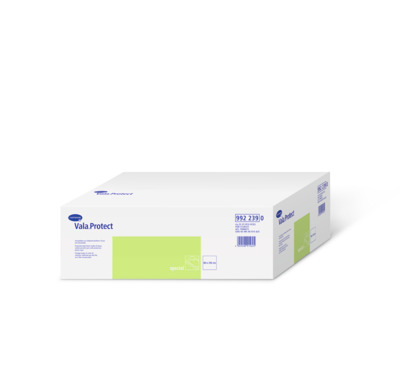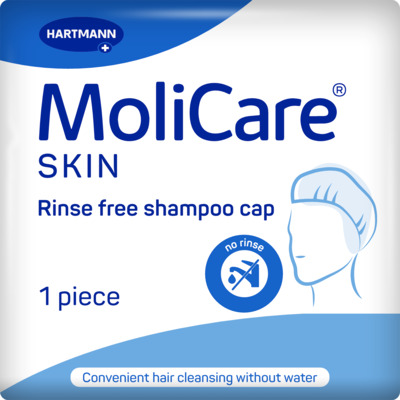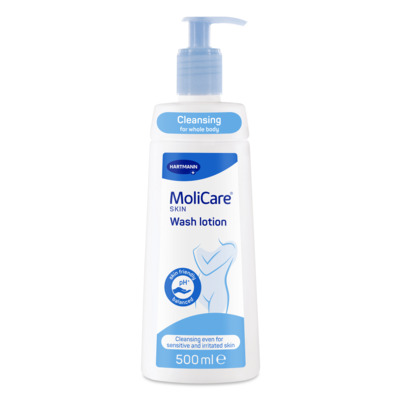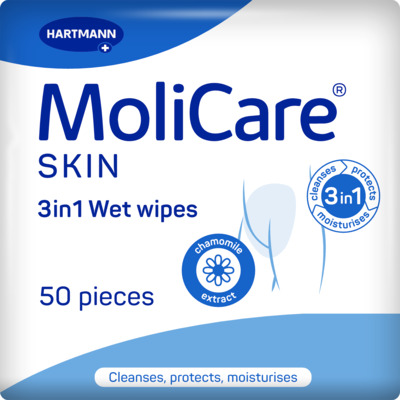Incontinence Advice
What Is A Barrier Cream - Expert Advice From 40 Years Of Experience
Barrier creams are topical solutions that form a physical shield between the skin and irritants like urine or feces, often aiding those with incontinence. By providing a protective layer, these creams prevent skin damage, maintain natural moisture levels, and counter environmental irritants. In this article, we explore the benefits and usage guidelines for incontinence skin barrier creams.

What Are Barrier Creams?
Barrier creams, also known as protective creams or skin barrier creams, are formulated products designed to provide a physical barrier between the skin and external irritants. They work by creating an impermeable layer on the skin's surface, preventing harmful substances such as urine, sweat, and moisture from penetrating the skin.
How Do Barrier Creams Work?
Barrier creams are a protective measure which play an
important role in preventing irritation of the skin, a common problem for
people living with incontinence.
Ingredients of Barrier Creams
Many barrier creams contain petroleum and other oil-based substances, making them feel greasy on the skin and more often than not, block the pores of the pad and prevent urine being correctly absorbed. However, MoliCare© Skin Barrier Cream is a water-in-oil-in-water based formula which means it provides an effective barrier without affecting the absorbency of the pad. Key ingredients are:
- Bisadolol – an anti-inflammatory agent.
- Urea – moisturising.
- Sweet almond oil – supports and maintains the skin barrier function.
- Panthenol – moisturiser.
- Allantoin - moisturiser.
How To Use Barrier Creams
Using a barrier cream correctly is essential to maximise its benefits and effectiveness. Here is a step-by-step guide on how to properly use a barrier cream:
- Cleanse and Dry the Skin: Begin by cleansing the area of the skin where you intend to apply the barrier cream. Use a mild cleanser and lukewarm water to gently wash the area. Pat the skin dry with a soft towel, ensuring there is no residual moisture.
- Take a Small Amount of Barrier Cream: Dispense a pea-sized amount of the barrier cream onto your fingertips or palm.
- Apply Evenly to the Desired Area: Apply the barrier cream to the desired area of the skin. Use gentle, circular motions to spread it evenly. Focus on areas that are prone to irritation, dryness, or friction.
- Reapply After Cleansing: Ensure you reapply the barrier cream as needed after changing and cleansing intimate areas.
- Follow product instructions: Read and follow the instructions provided by the specific barrier cream product you are using. Pay attention to any specific recommendations regarding application frequency, duration, or precautions.

What Is A Skin Barrier
Your skin is your largest organ, making up around one-seventh—or nearly 15%—of your total body weight. It’s what separates your delicate insides from the harsh outside world, making it one of the most important organs in your body. Skin is composed of a vast, complex network of various cells, proteins, ceramides, and lipids—but arguably, the most vital component of all is the skin barrier, sometimes referred to as the skin’s natural moisture barrier.
The skin barrier has several jobs, many of which are related to your health. Of all the skin barrier’s duties, researchers generally agree that it has three essential roles: Protecting your body from external stressors, like pollution and UV radiation, retaining water to keep your body and skin hydrated, and transporting vital nutrients to your skin. These combined factors are responsible for maintaining homeostasis—in other words, keeping your body’s various systems balanced.
When the skin barrier becomes compromised, such as in the case of incontinence-based dermatitis (IAD), it can result in a range of adverse effects. These include increased trans epidermal water loss, heightened sensitivity to contact irritants and allergens, and inflammation.
Benefits Of Barrier Creams
There are many benefits for using barrier creams, including the following:
1. Protection against Irritants:
Barrier creams act as a shield against various irritants, including urine and sweat. These creams effectively reduce the risk of dermatitis and other skin conditions caused by prolonged exposure to moisture.
2. Moisturisation and Hydration:
One of the essential functions of barrier creams is to prevent excessive moisture loss from the skin. By sealing in the natural moisture of the skin, barrier creams help maintain its hydration levels, especially in dry or cold environments. This is particularly beneficial for individuals with dry or sensitive skin, as barrier creams can alleviate discomfort and prevent further moisture depletion.
3. Skin Healing and Restoration:
The best barrier creams can help in the healing process of minor skin irritation. By providing a protective barrier, they create an optimal environment for skin regeneration, preventing the entry of bacteria and promoting faster healing. Additionally, barrier creams can soothe and calm irritated or inflamed skin, making them useful for conditions like eczema or diaper rash.
4. Handing Irritation:
Barrier creams help to manage:
- Hand dermatitis, if there has been contact with harsh chemicals, contact with water, repetitive friction.
- Nappy dermatitis (diaper rash), led by contact with urine or faeces, which can affect babies and adults with incontinence (incontinence-associated dermatitis – IAD)
- Stoma dermatitis, caused by contact with body fluids and stoma appliances.
- Dry skin.
Do you know the importance of skin care and incontinence?
Are There Any Risks Or Contradictions With Using Barrier Creams
In general, barrier creams are well-tolerated by most individuals. However, it is important to be aware of potential risks. While uncommon, some individuals may experience sensitivity to certain ingredients.
Moreover, we advise for you not to apply barrier creams directly to broken or compromised skin. This is because barrier cream is meant to provide protection to intact skin rather than promote healing or address specific skin conditions.
If you have broken or compromised skin, it is recommended to consult your GP or a healthcare professional.

Maintain Skin Protection With Barrier Creams
In conclusion, barrier creams play a crucial role in maintaining and protecting the skin's integrity. By forming a protective layer, they help reduce friction, retain moisture, and promote healing. Whether you're looking to prevent irritation, soften dry skin, or shield against moisture, barrier creams offer versatile solutions.
When using barrier creams, it is important to follow instructions provided by the product.
By incorporating barrier creams into your skincare routine, you can enhance the overall health and resilience of your skin. Remember to choose barrier creams suitable for your skin type, and if you encounter any persistent irritation, seek professional advice.
FAQs
What is a barrier cream, and how does it help with incontinence?
A barrier cream is a topical product designed to create a protective barrier on the skin's surface. When applied daily, barrier creams help shield the skin from moisture, irritants, and friction, reducing the risk of skin damage and irritation associated with incontinence.
How does a barrier cream differ from regular moisturisers?
Barrier creams are specifically formulated to provide an additional layer of protection against moisture, irritants, and friction, which are common issues faced by individuals with incontinence. Unlike regular moisturisers, barrier creams are specifically formulated for use in intimate areas, are a thicker consistency and often contain ingredients that create a physical barrier on the skin.
When should I apply a barrier cream?
It is recommended to apply a barrier cream daily after cleansing the area, or as advised by healthcare professionals. Applying the cream to clean, dry skin helps provide a protective barrier against moisture and potential irritants.
How much barrier cream should I use?
The amount of barrier cream needed will depend on the individual's skin condition, but as a rule of thumb, a fingernail or pea sized amount is recommended. Apply a thin, even layer to cover the area. Following the manufacturer's guidelines or consulting with a healthcare professional can help determine the appropriate amount for effective coverage.
Can I use barrier creams with incontinence products like pads or briefs?
Yes, barrier creams can be used in conjunction with incontinence products. Applying a barrier cream before putting on incontinence products helps create a protective layer between the skin and the product, reducing friction and potential irritation.
Are barrier creams suitable for all skin types?
Barrier creams are typically formulated to be suitable for a range of skin types, including sensitive skin. However, individual sensitivities can vary. It is recommended to perform a patch test before applying the cream to larger areas of the skin, especially for individuals with known skin allergies or sensitivities.
Can I use barrier creams for prevention even if I don't have any skin issues yet?
Yes, using a barrier cream proactively can help maintain skin health and prevent potential skin issues associated with incontinence. Applying a barrier cream as part of a regular skincare routine can provide an extra layer of protection and minimize the risk of skin damage, even before any visible signs of irritation occur.

ValaProtect Bed Sheets

MoliCare Skin Rinse free shampoo cap
<p>MoliCare® Skin is a complete cleanse, protect and care solution for skin stressed by incontinence and compromised skin. </p> <p><a href="https://www.youtube.com/watch?v=MZgu3L0_Yj4">Watch our video on how to use this product</a></p>
MoliCare® Skin Wash Lotion
<p>Used as a gentle alternative to your usual shower gel or soap, MoliCare® Skin Wash Lotion is a nourishing cleanser that is gentle enough for use on the most delicate skin. With nourishing almond oil and panthenol, this wash lotion cleanses and moisturises, use as part of your daily MoliCare skin cleanse, care and protect routine.</p> <p>With its integrated dispenser pump that’s quick and easy to use, even one-handed, MoliCare® Skin Wash Lotion effectively cleans even irritated or incontinence compromised skin and delicate areas. Dermatologically tested and with its pleasant fragrance plus odour neutralising, this cleanser will leave your skin feeling refreshed, and you feeling clean and confident.</p> <p>• Contains nourishing almond oil and panthenol<br /> • Easy to use pump dispenser for one-handed application<br /> • Refreshing fragrance and odour neutralising<br /> • Dermatologically tested<br /> • Gentle enough to be used on irritated or incontinence-compromised skin</p> <p>Our easy online ordering means you never have to worry about running out of your MoliCare® Skin Wash Lotion. With quick delivery direct to your door, we also offer free delivery on all orders over £50.</p> <p>Need more help? Our customer service team are on hand to answer all your queries – call us today on 0800 028 9470</p>
